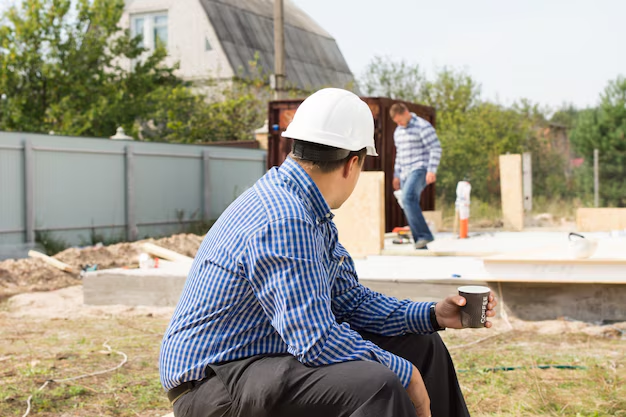Unlocking Homeownership: Can You Use a VA Loan to Build a House?
If you’re a veteran or an active duty service member dreaming of designing and constructing your own home, you might be wondering if a VA loan can help bring your vision to life. The answer is yes, you can use a VA loan to build a house, but the process isn't as straightforward as buying an existing home. Understanding the ins and outs of using a VA loan for construction—and knowing what steps to take—will empower you to make informed decisions on your path to homeownership.
Exploring VA Loans and Home Construction
What is a VA Loan?
A VA loan is a mortgage option available to veterans, active-duty service members, and in some cases, surviving spouses. Backed by the U.S. Department of Veterans Affairs, VA loans offer a number of benefits, including no down payment requirements and competitive interest rates, making homeownership more accessible to those who serve.
Can You Build a House with a VA Loan?
The short answer is yes, you can use a VA loan to finance the construction of a new home. However, not all lenders offer VA construction loans, and the process might involve more steps than purchasing an existing property. It’s crucial to find a lender experienced in VA construction loans to help guide you through the process.
Navigating the VA Construction Loan Process
Finding the Right Lender
Securing a lender who offers VA construction loans is your first step in making your dream home a reality. Not all lenders are equipped to handle these specific loans, so research and due diligence are essential. Look for lenders who:
- Specialize in VA loans.
- Have experience with construction lending.
- Can walk you through the entire process, from approval to completion.
Once you find a suitable lender, you’ll need to work with them to get pre-approved, which will determine your eligibility and how much you can borrow.
Understanding the Requirements
1. Creditworthiness and Income: Ensure that you meet the lender’s credit score requirements. Even though VA loans do not have a mandatory credit score minimum, lenders usually have their own standards.
2. Builder Approval: Your chosen builder needs to be VA-approved. They must meet specific criteria set by the VA to ensure the quality of construction.
3. Property Requirements: The location of your build site must qualify under VA guidelines. Certain types of properties, like second homes or investment properties, might not be eligible.
The Loan Process
A VA construction loan typically involves two phases: the construction phase and the permanent mortgage phase.
1. Construction Phase: Funds are distributed in increments, usually referred to as draws, as the construction progresses.
2. Transition to Permanent Loan: After construction is complete, the loan transitions to a permanent mortgage. Ensure your lender offers a one-time close loan to seamlessly transition the construction loan into a permanent VA mortgage, avoiding multiple loan applications and closings.
Considerations and Challenges
Potential Hurdles
Using a VA loan for construction can present some challenges. Common concerns include:
- Limited lender options: Since not all lenders offer VA construction loans, your choices may be limited.
- Timeline management: Construction projects can encounter delays, affecting your loan terms and interest rates.
- Construction-specific requirements: Additional paperwork and approvals are necessary, which can prolong the process.
Benefits of a VA Construction Loan
Despite the complexity, using a VA loan to build a home offers significant advantages:
- No down payment: Similar to buying an existing home, VA construction loans typically don't require a down payment.
- Financing flexibility: A builder's credit may cover costs during construction, with the VA loan funding after completion.
- Interest rate benefits: VA loans often have favorable interest rates compared to conventional loans.
Related Considerations
Renovating an Existing Home
If building from scratch feels daunting, using a VA loan to purchase and renovate an existing home might be an attractive alternative. Many veterans utilize this option to buy fixer-uppers, tailoring them to their preferences while maintaining the benefits of a VA loan.
Combining with Other Loans
It may also be possible to combine a VA loan with other financing options, such as construction loans, for more flexibility. Discuss potential loan combinations with your lender to understand how they can benefit your project.
Key Takeaways for Building a Home with a VA Loan
🔑 VA Approval is Crucial: Ensure both your lender and builder are VA-certified for a smoother process.
🔑 Multiple Loan Phases: Understand the transition from construction phase to permanent mortgage and seek out lenders offering one-time close loans.
🔑 Stay Informed on Eligibility: Verify your credit and income meet your lender’s requirements, and ensure the site qualifies for VA lending.
🔑 Plan for the Long Haul: Anticipate the complexities of new construction and set realistic timelines.
🔑 Consider Alternatives: Explore purchasing and renovating existing homes as a viable option under a VA loan.
A Strategic Approach to Building Your Home
Building a house with a VA loan requires strategic planning and a clear understanding of the process. By selecting the right lender, gaining familiarity with VA requirements, and weighing various options, veterans can take confident steps toward realizing their dream home. While the road may be complex, the end reward—a home that perfectly suits your needs and lifestyle—is well worth the journey.
By keeping these considerations and insights in mind, you’ll be well-equipped to take advantage of the benefits offered by a VA loan for construction. Whether constructing a new home or revamping an existing one, your path to homeownership is within reach.

Related Topics
